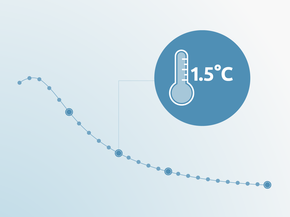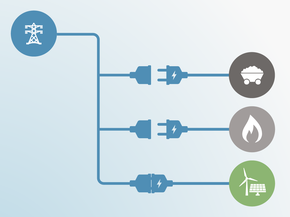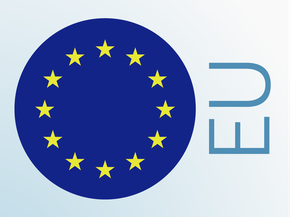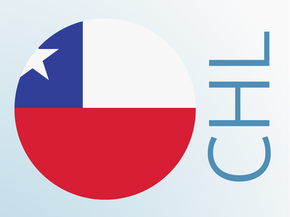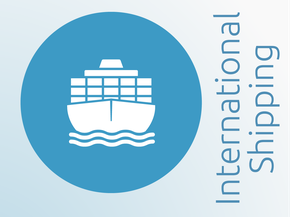Sources
List of references
Bloomberg. (2021). Maersk Seeks $150-a-Ton Carbon Tax on Shipping Fuel - Bloomberg. https://www.bloomberg.com/news/articles/2021-06-02/shipping-giant-maersk-seeks-150-a-ton-carbon-tax-on-ship-fuel
Bureau Veritas. (2021, May). Understanding new IMO decarbonization measures: EEXI and CII BV Solutions M&O – Focus on EEXI and CII| bvsolutions. https://www.bvsolutions-m-o.com/magazine/understanding-new-imo-decarbonization-measures-eexi-and-cii
Climate Change News. (2020). IMO under pressure to regulate new ship fuels over Arctic warming. https://www.climatechangenews.com/2020/01/27/imo-under-pressure-to-regulate-new-ship-fuels-over-arctic-warming/
Climate Home News. (2020, February 11). Shipping could raise ambition of 2030 climate target, study shows. https://www.climatechangenews.com/2020/02/11/shipping-raise-ambition-2030-climate-target-study-shows/
Comer, B., Chen, C., & Rutherford, D. (2018). Relating short-term measures to IMO ’ s minimum 2050 emissions reduction target. Appendix to paper MEPC 73/INF.27 presented to IMO Marine Environment Protection Committee. In International Council on Clean Transportation (Issue 13). https://www.theicct.org/sites/default/files/publications/IMO_Short_term_potential_20181011.pdf
Comer, B., Olmer, N., Mao, X., Roy, B., & Rutherford, D. (2017). Prevalence of heavy fuel oil and black carbon in Arctic shipping, 2015 to 2025. International Council on Clean Transportation (ICCT), May, 68 pp. https://www.theicct.org/publications/prevalence-heavy-fuel-oil-and-black-carbon-arctic-shipping-2015-2025
Energy Transitions Commission. (2019). Mission Possible | Energy Transitions Commission. http://www.energy-transitions.org/mission-possible
European Commission. (2019). Reducing emissions from the shipping sector | Climate Action. https://ec.europa.eu/clima/policies/transport/shipping_en
European Commission. (2020, January 3). Cleaner Air in 2020: sulphur cap for ships. https://ec.europa.eu/commission/presscorner/detail/en/IP_19_6837
European Commission. (2021a). COUNCIL DIRECTIVE restructuring the Union framework for the taxation of energy products and electricity (recast).
European Commission. (2021b). DIRECTIVE OF THE EUROPEAN PARLIAMENT AND OF THE COUNCIL amending Directive 2003/87/EC establishing a system for greenhouse gas emission allowance trading within the Union, Decision (EU) 2015/1814 concerning the establishment and operation of a market stability reserve for the Union greenhouse gas emission trading scheme and Regulation (EU) 2015/757.
European Commission. (2021c). REGULATION OF THE EUROPEAN PARLIAMENT AND OF THE COUNCIL on the deployment of alternative fuels infrastructure, and repealing Directive 2014/94/EU of the European Parliament and of the Council.
European Commission. (2021d). REGULATION OF THE EUROPEAN PARLIAMENT AND OF THE COUNCIL on the use of renewable and low-carbon fuels in maritime transport and amending Directive 2009/16/EC. https://ec.europa.eu/info/sites/default/files/fueleu_maritime_-_green_european_maritime_space.pdf
European Parliament. (2021). Legislative train schedule: Fit for 55 package under the European Green Deal. https://www.europarl.europa.eu/legislative-train/theme-a-european-green-deal/package-fit-for-55
Government of the UK. (2021). UK enshrines new target in law to slash emissions by 78% by 2035 - GOV.UK. https://www.gov.uk/government/news/uk-enshrines-new-target-in-law-to-slash-emissions-by-78-by-2035
Hayer, S. (2016). Decision-making processes of ICAO and IMO in respect of environmental regulations STUDY. https://op.europa.eu/en/publication-detail/-/publication/996fd06c-de15-11e6-ad7c-01aa75ed71a1
HFO-Free Arctic. (2016). What are the Risks of Using Heavy Fuel Oil in the Arctic? - HFO-Free Arctic. https://www.hfofreearctic.org/hrf_faq/risks-using-heavy-fuel-oil-arctic/#_ftn13
Iago, D. ab. (2020). Parliament votes EU ETS ship inclusion. Argus Media. https://www.argusmedia.com/en/news/2141385-parliament-votes-eu-ets-ship-inclusion
ICCT. (2020, November). Potential CO2 reductions under the Energy Efficiency Existing Ship Index | International Council on Clean Transportation. https://theicct.org/publications/marine-eexi-nov2020
ICCT. (2021, May). Choose wisely: IMO’s carbon intensity target could be the difference between rising or falling shipping emissions this decade | International Council on Clean Transportation. https://theicct.org/blog/staff/imo-carbon-intensity-target-may2021
IMO. (2009). Second IMO GHG Study 2009. 220. http://www.imo.org/en/OurWork/Environment/PollutionPrevention/AirPollution/Documents/SecondIMOGHGStudy2009.pdf
IMO. (2017). Energy Efficiency Measures. http://www.imo.org/en/OurWork/Environment/PollutionPrevention/AirPollution/Pages/Technical-and-Operational-Measures.aspx
IMO. (2018). Initial IMO Strategy on Reduction of GHG Emissions From Ships - Resolution MEPC.304(72). 304(April), 1–11. http://www.imo.org/en/KnowledgeCentre/IndexofIMOResolutions/Marine-Environment-Protection-Committee-%28MEPC%29/Documents/MEPC.304%2872%29.pdf
IMO. (2019a). IMO Unified Interpretations to MARPOL Annex V (MEPC.1/Circ.795/Rev.4). 44(0). http://www.imo.org/en/OurWork/Environment/PollutionPrevention/Documents/MEPC.1-Circ.795-Rev.4.pdf
IMO. (2019b). MEPC.323(74) - Invitation to Member States to Encourage Voluntary Cooperation. 323(May), 18–19.
IMO. (2019c). Reduction of the impact on the Arctic of Black Carbon Emissions from International Shipping. https://www.euractiv.com/wp-content/uploads/sites/2/2020/01/PPR-7-8-Initial-results-of-a-Black-Carbon-measurement-campaign-with-emphasis-on-the-impact-of-the...-Finland-and-Germany.pdf
IMO. (2019d, November). Reducing greenhouse gas emissions from ships. http://www.imo.org/en/MediaCentre/HotTopics/Pages/Reducing-greenhouse-gas-emissions-from-ships.aspx
IMO. (2020, November). IMO Environment Committee approves amendments to cut ship emissions. https://www.imo.org/en/MediaCentre/PressBriefings/pages/42-MEPC-short-term-measure.aspx
IMO - MEPC. (2020a). Reduction of GHG emissions from ships. Fourth IMO GHG Study 2020. International Maritime Organization, 53(9), 1689–1699.
IMO - MEPC. (2020b, November). Marine Environment Protection Committee (MEPC) 75, 16-20 November (virtual session. https://www.imo.org/en/MediaCentre/MeetingSummaries/Pages/MEPC-75th-session.aspx
IPCC. (2006). 2006 IPCC Guidelines for National Greenhouse Gas Inventories - Chapter 3. 1–78. https://www.ipcc-nggip.iges.or.jp/public/2006gl/vol3.html
IPCC. (2018). IPCC Special Report on the impacts of global warming of 1.5°C. IPCC. https://www.ipcc.ch/sr15/
Kachi, A., Mooldijk, S., & Warnecke, C. (2019). Carbon pricing options for international maritime emissions. NewClimate Institute. https://newclimate.org/2019/03/19/carbon-pricing-options-for-international-maritime-emissions/
Lloyd’s Register, & UMAS. (2019). Zero-Emission Vessels: Transition Pathways. 30. https://www.lr.org/en-gb/insights/global-marine-trends-2030/zero-emission-vessels-transition-pathways/
Lowell, D., & Bradley, M. J. (2013). Assessment of the fuel cycle impact of liquefied natural gas as used in international shipping (Issue May). http://www.theicct.org/sites/default/files/publications/ICCTwhitepaper_MarineLNG_130513.pdf
MAERSK. (2019, June 26). Towards a zero-carbon future. https://www.maersk.com/news/articles/2019/06/26/towards-a-zero-carbon-future
Mao, X., Chen, C., Comer, B., Rutherford, D., & (ICCT), I. C. on C. T. (2019). Cost and Benefits of a Pearl River Delta Emission Control Area (Issue July). https://theicct.org/sites/default/files/publications/ICCT_pearl_river_delta_eca_20190718.pdf%0Ahttps://trid.trb.org/view/1641785
March, D., Metcalfe, K., Tintoré, J., & Godley, B. J. (2021). Tracking the global reduction of marine traffic during the COVID-19 pandemic. Nature Communications, 12(1), 1–12. https://doi.org/10.1038/s41467-021-22423-6
MARPOL ANNEX VI. (2013). EEDI & SEEMP explained - Website of marpol-annex-vi! https://www.marpol-annex-vi.com/eedi-seemp/
MARPOL Training Institute. (2005). MARPOL - Annex VI. http://www.marpoltraining.com/MMSKOREAN/MARPOL/Annex_VI/index.htm
Ocean Conservancy. (2020, November). IMO and Arctic States Slammed for Endorsing Continued Arctic Pollution - Ocean Conservancy. https://oceanconservancy.org/news/imo-arctic-states-slammed-endorsing-continued-arctic-pollution/
OECD. (2018). Decarbonising Maritime Transport. International Transport Forum, 86. https://www.itf-oecd.org/sites/default/files/docs/decarbonising-maritime-transport.pdf
OECD - ITF. (2018). Reducing Shipping Greenhouse Gas Emissions Lessons From Port-Based Incentives Case-Specific Policy Analysis. https://www.itf-oecd.org/sites/default/files/docs/reducing-shipping-greenhouse-gas-emissions.pdf
Pavlenko, N., Comer, B., Zhou, Y., Clark, N., & Rutherford, D. (2020a). The climate implications of using LNG as a marine fuel. In ICCT Working Paper 2020-02. https://theicct.org/sites/default/files/publications/Climate_implications_LNG_marinefuel_01282020.pdf
Pavlenko, N., Comer, B., Zhou, Y., Clark, N., & Rutherford, D. (2020b). The climate implications of using LNG as a marine fuel. January. www.theicct.org
Port of Rotterdam. (2017). Right Here. Right Now. Make it happen. CO2 Neutral Port Of Rotterdam. https://www.portofrotterdam.com/sites/default/files/port-of-rotterdam-co2-neutral.pdf
Psaraftis, H. N., & Kontovas, C. A. (2021). Decarbonization of maritime transport: Is there light at the end of the tunnel? Sustainability (Switzerland), 13(1), 1–16. https://doi.org/10.3390/su13010237
Reuters. (2020, July). EU lawmakers agree to include shipping emissions in EU carbon market | Reuters. https://www.reuters.com/article/us-climate-change-eu-shipping-idUSKBN2481UD
RNZ. (2021, March). Marshall and Solomons urge carbon tax for shipping industry | RNZ News. https://www.rnz.co.nz/international/pacific-news/438514/marshall-and-solomons-urge-carbon-tax-for-shipping-industry
Roy, B., & Comer, B. (2017). Alternatives to heavy fuel oil use in the Arctic: Economic and environmental tradeoffs. https://theicct.org/publications/alternatives-heavy-fuel-oil-use-arctic-economic-and-environmental-tradeoffs
Rutherford, A. D. (ICCT), Mao, X., Osipova, L., & Comer, B. (2020). Limiting engine power to reduce CO2 emissions from existing ships (Issue February). https://theicct.org/publications/limiting-engine-power-reduce-co2-existing-ships-2020
Rutherford, D., & Comer, B. (2018). International Maritime Organization’s Initial Greenhouse Gas Strategy. International Council on Clean Transportation (ICCT), April 2018, 8. https://theicct.org/publications/IMO-initial-GHG-strategy
Safety4Sea. (2021, June). IMO adopts “weak” CO2 intensity reduction measures despite criticism - SAFETY4SEA. https://safety4sea.com/imo-adopts-weak-co2-intensity-reduction-measures-despite-criticism/?__cf_chl_jschl_tk__=eb4b27cb2078dfd7f9603ce857026f946c8b283a-1623831706-0-AarJzTw_DE7A4cMNvWG73-cxV36L-jYwjRa59oLlKB1BcWSnE90QuGfa4uPd3JafDvOerq3MaVj9EVgN026d7K6dwuSLjsnn5tDjNm1BVyvRm_asNfUIt3gHWYLZj7_d5Dsx7mQLTo0iyAP7spjB2m9roooE3bhwFoWwT5z0wGV-kvN-NKCqmwtiQ-Mq35IFxaryuZPOm648xzAlHqKmvoQNhQpBxLmOfBAYc4vA8vgrr5AnJ1nONfzFhTjMAJDQ3u_dEKyPy1m2Wbnpj1I58O1GpLavagCIgv_wKWPoi7QOn2Qoc5ajdLYmKL8Tlx_qu93h8SYZY6hc60wBqwJ53vz_CoXAnS90Kg_QhVs6bbQ1_vUmPH4OKR4c3d387d4VNheX4yztHcfNZ59b_o0iWEiECPo2Pc8hpd7eYRBlC_lGMKh-UuwG4sdEW0nKc1ilFwfOM0tV2RugDx6gsTBlY4-1LnnOFQxa4nmAFrw3iquC
Sand, M., Berntsen, T. K., Seland, Ø., & Kristjánsson, J. E. (2013). Arctic surface temperature change to emissions of black carbon within Arctic or midlatitudes. Journal of Geophysical Research: Atmospheres, 118(14), 7788–7798. https://doi.org/10.1002/jgrd.50613
Saul, J. (2021). UN adopts ban on heavy fuel oil use by ships in Arctic. Reuters.
Ship & Bunker. (2020, January 7). Bimco Suggests IMO 2030 Carbon Reduction Target Should be Toughened - Ship & Bunker. https://shipandbunker.com/news/world/405455-bimco-suggests-imo-2030-carbon-reduction-target-should-be-toughened
Smith, T. W. P., Jalkanen, J. P., Anderson, B. A., Corbett, J. J., Faber, J., Hanayama, S., O’Keeffe, E., Parker, S., Johansson, L., Aldous, L., Raucci, C., Traut, M., Ettinger, S., Nelissen, D., Lee, D. S., Ng, S., Agrawal, A., Winebrake, J. J., & Hoen, M., A. (2014). Third IMO Greenhouse Gas Study 2014. International Maritime Organization (IMO), 327. https://doi.org/10.1007/s10584-013-0912-3
Spero, J., & Raval, A. (2013). Maritime chiefs call for ship speed limits to cut emissions | Financial Times. Financial Times, 2020. https://www.ft.com/content/30e68844-6a8f-11e9-80c7-60ee53e6681d
The Canadian Press. (2020, February 21). Ban on heavy fuel oil in Arctic full of holes: environmental group | North Shore News. https://www.nsnews.com/ban-on-heavy-fuel-oil-in-arctic-full-of-holes-environmental-group-1.24081294
Transport & Environment. (2019, July 10). LNG remains a deadend for decarbonising maritime transport | Transport & Environment. https://www.transportenvironment.org/newsroom/blog/lng-remains-deadend-decarbonising-maritime-transport
Transport & Environment. (2021, April). UK closes loophole on plane and ship emissions with carbon budget | Transport & Environment. https://www.transportenvironment.org/press/uk-closes-loophole-plane-and-ship-emissions-carbon-budget
UNCTAD. (2019). Review of Maritime Transport 2019 (Issue October). https://unctad.org/en/PublicationsLibrary/rmt2019_en.pdf
UNCTAD. (2021). Beyond 20/20 WDS - Table view - Port call and performance statistics: number of port calls, annual. https://unctadstat.unctad.org/wds/TableViewer/tableView.aspx?ReportId=194889
University Maritime Advisory Services. (2019). How Can Shipping Decarbonise ? https://u-mas.co.uk/Latest/Post/411/How-can-shipping-decarbonise-A-new-infographic-highlights-what-it-d-take-to-decarbonise-shipping-by-2050
WTO. (2021). WTO | 2021 Press Releases - World trade primed for strong but uneven recovery after COVID 19 pandemic shock - Press/876. https://www.wto.org/english/news_e/pres21_e/pr876_e.htm
Yanguas Parra, P. A., Ganti, G., Brecha, R., Hare, B., Schaeffer, M., & Fuentes, U. (2019). Global and regional coal phase-out requirements of the Paris Agreement: Insights from the IPCC Special Report on 1.5°C. https://climateanalytics.org/media/report_coal_phase_out_2019.pdf
Further analysis
Latest publications
Stay informed
Subscribe to our newsletter


